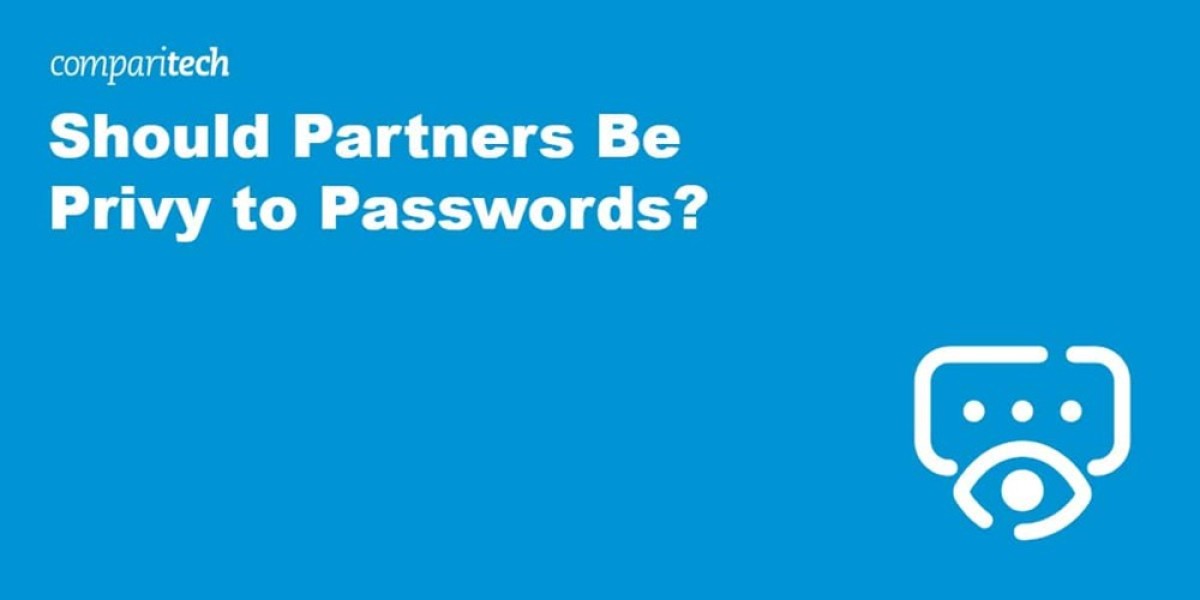Digital Privacy and Trust in Couples
Navigating Privacy in Relationships: Social Media Access Between Partners
In today's digital age, social media accounts have become deeply personal extensions of ourselves. Our research examined how couples handle the delicate balance between privacy and transparency when it comes to these digital spaces.
After analyzing responses from more than 1,000 individuals in various relationship stages, we discovered some interesting patterns about password sharing between partners.
Nearly half of all participants (47%) reported mutual password exchange with their significant others. This reciprocal arrangement appears to be a modern expression of trust, with minimal gender disparity—women demonstrated only a marginally higher tendency to share their login credentials compared to men.
The question of whether partners should have access to each other's social media accounts reflects broader relationship dynamics around trust, privacy, and boundaries. While some couples view password sharing as a natural extension of intimacy, others maintain that personal digital spaces should remain separate even in committed relationships.
This digital boundary negotiation represents just one facet of how modern couples navigate trust in an increasingly online world.
When it comes to sharing passwords, there are notable differences across generations. Millennials lead the way, with just over 49% willing to share their passwords. Gen Xers follow closely, with nearly 43%, and baby boomers come in at over 38%. The higher percentage of millennials may be attributed to their deep-rooted familiarity with technology, having grown up with computers, smartphones, and social media. This long-term exposure to digital platforms might make them more at ease with the idea of password sharing.
Marital status also plays a role in this trend. Married individuals are more inclined to share their passwords, with about 53% of married people doing so, compared to over 34% of those in a committed but unmarried relationship.
The primary reason for sharing social media passwords, regardless of gender, is a sense of transparency. Many feel they have nothing to hide on their accounts. Convenience is another significant factor, as it allows partners to access information or post on each other's behalf. Additionally, some people share their passwords because they trust their partners not to use their accounts without permission.
Trust dynamics in relationships often shift when social media credentials are shared between partners. Our research revealed interesting patterns in how this exchange affects trust levels.
While the majority of participants reported no change in trust after password sharing, gender differences emerged in the data. Men were more likely than women to experience decreased trust following password exchange with their partners. This decline may be attributed to boundary issues that arose post-sharing.
It's important to note that providing access to one's social media accounts doesn't automatically grant permission for comprehensive surveillance of private messages or online activities. Many participants expressed discomfort when they discovered their partner had exceeded the implied boundaries of the password-sharing arrangement.
Interestingly, a segment of male respondents reported increased trust after sharing passwords, suggesting that the voluntary disclosure of personal information fostered greater transparency and openness in their relationships.
These findings highlight the complex interplay between digital privacy, trust, and relationship boundaries in the modern era.
Over half of partners who know each other's access codes confess to secretly logging into accounts.
This digital snooping often extends to reading private messages, marking a significant breach of trust.
Streaming platforms like Netflix, Hulu, and HBO Now emerge as the most frequently shared accounts.
This prevalence likely stems from lower perceived privacy risks on media services
(unless hiding unusual viewing choices).
Additionally, family setups often use single accounts with individual profiles,
especially on Netflix where usage tracking, tailored recommendations,
and personal watch histories make separate profiles practical.
Financial accounts, particularly online banking platforms, are frequently shared between partners. This is logical considering many couples manage their finances jointly, requiring both individuals to access and oversee expenditures and handle bill payments. Additionally, subscription services like Amazon Prime commonly have shared credentials among couples.
In contrast, messaging applications such as iMessage, WhatsApp, and Facebook Messenger represent the category where password sharing is least prevalent. These platforms typically contain private conversations and personal communications. Survey data indicates that fewer than 22% of participants reported exchanging passwords for these messaging services.
Across various account types, women demonstrated a greater tendency than men to share their passwords, with the exception of music streaming services where sharing rates were equivalent between genders. Notably, men were more inclined to maintain complete privacy by not sharing any passwords whatsoever.
When examining the 53% of respondents who opted against sharing social media credentials with their partners, the primary justification was similar across genders: either their partners never requested access to their accounts, or they themselves never sought access to their partner's accounts.
Digital Trust and Privacy in Relationships
Men predominantly perceived password sharing as a sign of controlling behavior.
Discomfort levels differed significantly:
over 19% of men resisted handing over access,
while under 11% of women expressed similar reluctance.
Though privacy remained valued by both genders,
men notably emphasized this need more strongly.
Social media has become a battleground for many relationships, with nearly a third of participants in our study reporting arguments with their significant others over online posts. Even more concerning, 16% discovered infidelity through social media platforms, while 12% terminated relationships directly because of their partner's social media activity.
When relationships end, digital security becomes a priority for most individuals. Our survey of divorced and separated respondents revealed that 89% took the precautionary measure of updating their passwords following the breakup. However, it's noteworthy that 18% still retained knowledge of their former partner's login credentials, raising potential privacy concerns in the aftermath of relationship dissolution.
In the aftermath of a romantic breakup, many individuals took steps to secure their digital footprints. Nearly 32% altered the passwords on their computers, while 17.5% changed their debit card PINs. Interestingly, cellphones and social media accounts were the most frequent targets for password changes, with 38% updating their social media credentials. However, video streaming services saw fewer changes, with only about 13% of respondents opting to update these passwords, possibly due to the minimal privacy concerns associated with such accounts.
The prevalence of social media in our lives makes it a critical area where personal boundaries can blur, especially in romantic relationships. While some couples may share passwords, others prefer to keep certain aspects of their online presence private. This preference stems from a desire to maintain a sense of individuality and control over personal information.
Password sharing is a significant act of trust. It involves not only relationship dynamics but also potential financial risks. If a shared password is misused, it can lead to unauthorized access to bank accounts or credit card information, causing both emotional and financial harm. Therefore, it's essential to be cautious when deciding to share passwords, recognizing the level of trust and vulnerability involved.
To better understand the impact of password sharing on trust, a survey was conducted with 1,008 participants who were either in a relationship, married, divorced, or separated. The study found that 60% were married, 34% were in a relationship, and 6% had experienced a divorce or separation. The majority of respondents (53%) identified as women, and 47% as men. The age distribution included 61% millennials, 27% from Generation X, and 12% baby boomers.
Respondents were asked to rate their level of trust in their relationship before and after exchanging passwords. The scale ranged from "not at all trusting" to "extremely trusting." By comparing these ratings, the study aimed to determine if password sharing increased, decreased, or maintained the same level of trust. For example, if a respondent rated their relationship as "extremely trusting" before and "very trusting" after, this indicated a slight decrease in trust, though still positive.
The study's findings highlight the importance of considering the implications of password sharing in relationships. While it can be a sign of trust, it also comes with potential risks. Therefore, it's crucial to weigh the benefits and drawbacks carefully. For those looking to enhance their online security, tools like password managers and virtual private networks (VPNs) can be valuable resources.
In conclusion, while social media and other digital platforms are integral to our lives, maintaining personal boundaries and security is paramount. Sharing your findings on this topic is encouraged for noncommercial purposes, provided you link back to the original study to give credit to the contributors.
What is a Netflix VPN and How to Get One
A Netflix VPN is a specialized virtual private network service designed to bypass Netflix's geographical content restrictions. It achieves this by masking the user's real location and routing their internet connection through servers located in other countries. This enables viewers to unlock and stream region-specific Netflix libraries, granting access to a significantly wider range of shows and movies unavailable in their own location.
Why Choose SafeShell as Your Netflix VPN?
If you're looking to access region-restricted content on Netflix, you might want to consider SafeShell VPN as your go-to solution. This powerful VPN service offers a comprehensive set of features specifically designed to enhance your streaming experience, ensuring that Netflix unblocked content is just a click away, regardless of your geographical location.
SafeShell VPN stands out from competitors with its impressive array of advantages. The service boasts high-speed servers optimized for seamless Netflix streaming, eliminating buffering and ensuring high-definition playback. Additionally, its exclusive App Mode feature allows you to access content from multiple regions simultaneously, expanding your entertainment options significantly. The VPN's lightning-fast speeds come with no bandwidth limitations, making it perfect for binge-watching your favorite shows without interruptions.
Security and convenience are at the core of SafeShell VPN's offerings. Their proprietary "ShellGuard" protocol ensures top-level security for all your browsing sessions, protecting your data from potential threats. The service supports connectivity on up to five devices simultaneously across various platforms including Windows, macOS, iOS, Android, and smart TVs. Best of all, SafeShell VPN offers a flexible free trial plan, allowing you to experience all these premium features before making a commitment, making it an ideal choice for anyone seeking reliable Netflix unblocked access.
A Step-by-Step Guide to Watch Netflix with SafeShell VPN
To begin using SafeShell Netflix VPN for accessing international Netflix libraries, first subscribe to the service by visiting the SafeShell VPN website. Select a suitable subscription plan that fits your requirements and budget, then proceed to create your account and complete the payment process. Once subscribed, navigate to the download section of the website to acquire and install the SafeShell VPN application on your specific device, whether it's a computer, smartphone, or tablet.
After installing the SafeShell VPN app, launch it and log in using your newly created account credentials. Within the application interface, locate the mode selection options; for the optimal Netflix streaming experience, it is crucial to choose the dedicated APP mode. Next, browse the extensive list of available VPN servers and select one located specifically in the country whose Netflix content library you wish to unlock, such as the United States, United Kingdom, or Japan, before clicking the connect button to establish a secure tunnel.
Once the SafeShell Netflix VPN connection to your chosen server location is successfully established and confirmed within the app, you are ready to access Netflix. Simply open your Netflix application or navigate to the Netflix website in your browser and log in to your account. You will now be able to seamlessly stream the exclusive content available in the region corresponding to your selected VPN server location.



